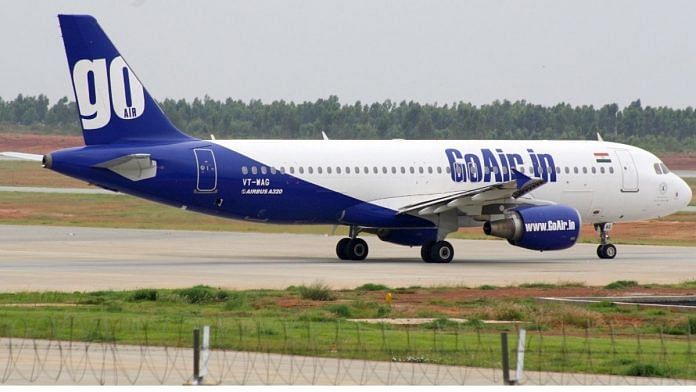Mumbai: Pilots of an Airbus SE A320neo jet in India shut down a Pratt & Whitney engine mid-air last month after it encountered problems, people familiar with the incident said, reviving concerns about the turbines that have been plagued by issues since their debut in early 2016.
The twin-engine jet, operated by Go Airlines India Ltd., landed safely using its other engine in the western city of Ahmedabad on Sept. 19, people familiar with the matter said, asking not to be identified because the matter is confidential. Both the engines’ turbines had already been modified following repeated glitches, the people said. Indian regulators are looking into faults in the engine’s heat-management and oil systems as possible causes, one of the people said.
Representatives for Pratt and GoAir didn’t immediately respond to requests for comment. A spokesperson for Airbus wasn’t immediately able to comment. A representative for the aviation ministry, which oversees the Directorate General of Civil Aviation, didn’t respond to a request for comment.
The latest problem adds another layer to the woes of Pratt, which is owned by Raytheon Technologies Corp. The new engine for narrow-body jets has cost $10 billion to develop but has faced delivery delays and multiple issues leading to mid-air shutdowns. IndiGo, the biggest customer for Airbus’s best-selling A320neo, decided last year to switch away from the engines, placing a $20 billion order instead with rival CFM International Inc., a venture between General Electric Co. and France’s Safran SA.
Outside of durability issues and delivery delays, Indian regulators have been concerned about Pratt’s so-called third-stage low-pressure turbine blades.
India, where the most popular narrow-body market is dominated by the A320neo, mandated in 2019 that all engines must modify that particular component with a different material “less susceptible to impact damage.” Without that tweak, such as was implemented on the GoAir jet, pilots are at risk of one or more engines failing, losing control or worse, crashing the aircraft, according to the DGCA.
It wasn’t immediately clear how many passengers were on board the jet that took off from the southern Indian city of Hyderabad. The plane, registered VT-WGK, didn’t fly again until Oct. 8, data from flight tracking website flightradar24.com show.
India last month ordered GoAir to ground jets that hadn’t had their Pratt engines modified to the specifications mandated by the DGCA.
IndiGo, operated by InterGlobe Aviation Ltd., had already modified all of its engines after regulators granted repeated extensions to meet requirements. Commercial jets can typically fly on one engine even if the other fails. –Bloomberg
Also read: Modi govt plans to drop condition that Air India buyer take on Rs 24,000 cr aircraft debt



